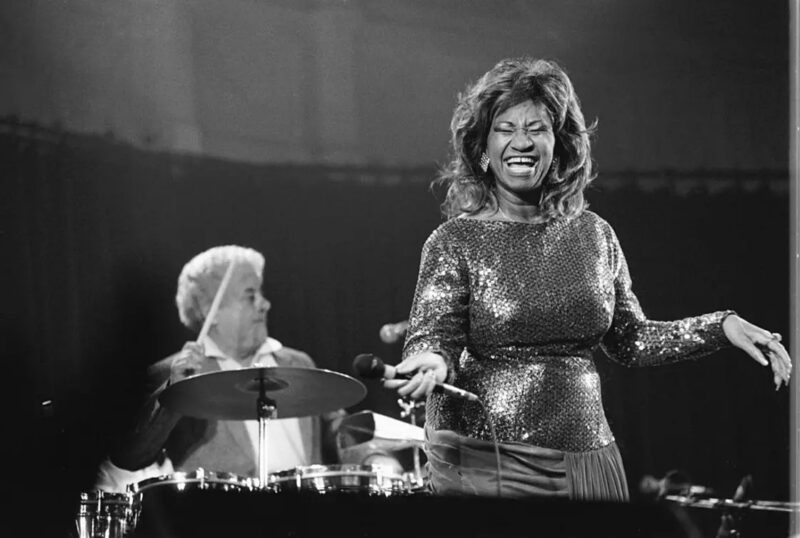She’ll be the first Afro Latina on a U.S. quarter. Here’s Celia Cruz, remembered.
Share
Explore Our Galleries
Breaking News!
Today's news and culture by Black and other reporters in the Black and mainstream media.
Ways to Support ABHM?
By Anagilmara Vilchez, Noticias Telemundo
Twenty years after the death of one of the first global Latin superstars, three friends who worked closely with the “Queen of Salsa” share personal memories and discuss her legacy.

In 2024, the late Celia Cruz will be the first Afro Latina face on a U.S. quarter, part of the American Women Quarters series that also honors suffragettes, civil rights defenders, abolitionists and scientists who changed history.
That Cruz is part of that storied list is no surprise to the legions of fans around the world that recognize the lasting legacy of the “Queen of Salsa” as one of the first truly global crossover Latin artists.
Cruz, who won several Grammy and Latin Grammy awards, received the National Medal of Arts, among the nation’s highest honors, in 1994. She has a star in the Hollywood Walk of Fame and one on Miami’s famous Calle Ocho, and has a school in New York City named after her.
Twenty years after she died from brain cancer complications at age 78, Cruz is remembered by those close to her as a nurturing friend who spent hours answering fan letters by hand, who loved to cook Cuban food once a year when she wasn’t touring the world, and who was still humbled and surprised when thousands of fans attended a concert she gave at a festival in Finland, “close to the North Pole.”
Noticias Telemundo spoke with Omer Pardillo Cid, her longtime manager for almost 30 years and executor of her estate, as well as with photographer Alexis Rodríguez and stylist Tico Torres. The last two introduced themselves to Cruz when they were living and working in London and went on to photograph and style her for years, forming a deep friendship.
Read more about Celia Cruz’s musical legacy here.
Check out this article about American Protest Music or this article about the importance of music education.









Comments Are Welcome
Note: We moderate submissions in order to create a space for meaningful dialogue, a space where museum visitors – adults and youth –– can exchange informed, thoughtful, and relevant comments that add value to our exhibits.
Racial slurs, personal attacks, obscenity, profanity, and SHOUTING do not meet the above standard. Such comments are posted in the exhibit Hateful Speech. Commercial promotions, impersonations, and incoherent comments likewise fail to meet our goals, so will not be posted. Submissions longer than 120 words will be shortened.
See our full Comments Policy here.